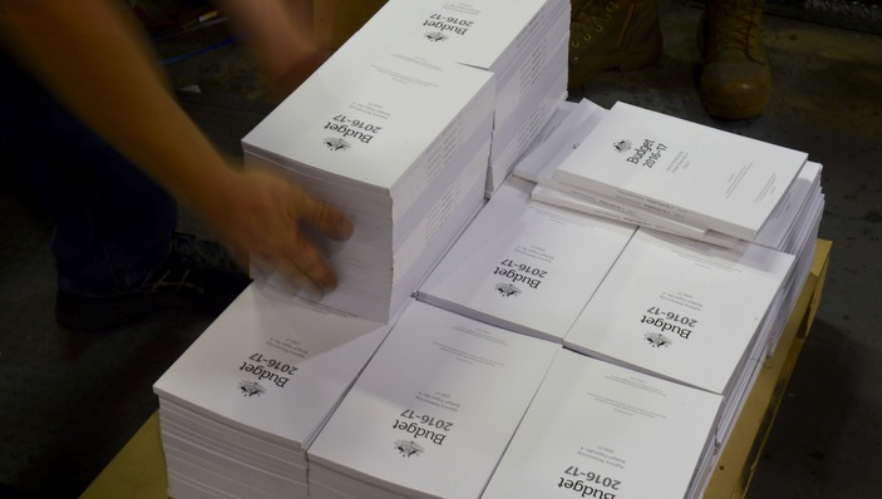The Government Has Blocked All Student Media From Accessing The Budget And They’re Pissed
It'll be a "Baby Boomer Budget", while student publications are banned.

Every year, the government locks almost 600 journalists into a corner of Parliament House, bans them from speaking with the outside world for a few hours, and gives them a copy of the Federal Budget.
It’s called the Budget lock-up, and the logic is this: journos deserve the right to scrutinise the big, complex document that is the Budget, but they can’t talk about it before it’s officially released that night, so they get locked in a room without their phones.
They’re given access to Treasury officials who can answer technical questions about the document, and they can also talk to politicians in the room about their proposed policies.
This year, the government told all student media organisations in the country that they weren’t invited.
In response, eight of us — Woroni (of which I’m the News Editor), Pelican, Et Cetera, Honi Soit, Farrago, Tharunka, Vertigo and Grapeshot — have penned an open letter criticising the decision.
The ban is a particularly strange move, considering that only last week Malcolm Turnbull told media that this would be a “baby-boomer Budget”. We can also expect that this year, like most years, the Budget will have a big effect on students.
In the past year, the government has: frozen Commonwealth Grant Scheme funding for bachelor degrees at 2017 levels, cut over 1,000 “specialist” student places, planned to increase student fees by 7.5 percent over five years, and announced that it wants to lower the HELP repayment threshold to $45,000.
OPEN LETTER – The Government Has Blocked All Student Media From Accessing The Budget Lock-Up. Signed: @Woroni, @FarragoMagazine, @honi_soit, @byEtCetera, @VertigoMagazine, @tharunka, @grapeshotMQ, @PelicanMagazine pic.twitter.com/fjL7SADGlH
— Woroni (@Woroni) April 11, 2018
The student paper I edit, Woroni, has covered Budget decisions a lot in the past — our readers care hugely about them.
The national post-Budget conversation is shaped by the news coverage immediately after the Budget, and the government knows this. By banning us from the lock-up, the government is preventing young people from having a voice in the post-Budget discussion.
So why did they block us?
In an email, the Treasury said “due to space restrictions, the lock-up is limited to professional news publications only.”
Here’s why that’s bogus: In 2017, 580 members of the media were given access to the lock-up. And it’s not like every single one of those seats were taken up by a super serious, big deal journo who was going to have her work read far and wide.
A fair few seats were used by professional media to make comedy skits and report what it was like “behind-the-scenes” of the budget lock-up.
In 2014, 2015, and 2016 student media publications were let into the budget lock-up. It’s pretty suss that for a “baby-boomer budget”, the government is not letting young Australia properly scrutinise its policies.
— Max Koslowski (@MaxKoslowski) April 11, 2018
That’s why it’s weak for the government to say ‘sorry, we’re too full to cater for young Australians’, while also letting in massive camera crews who only produce comedy routines once inside the building.
And even if they were having difficulty fitting two student journalists into the budget lock-up, there’s a really simple solution: Get. A. Bigger. Room.
That’s why student media across the country signed onto this open letter: after a year of sustained attempts to change higher education policy, we at least deserve the respect to be able to examine the government’s policy suggestions.
And really, what is the government afraid of?
If they believe your higher education policies are so good, why are you scared of ‘unprofessional’ student media outlets scrutinising them?
—
Max Koslowski is a freelance writer and the News Editor of the Australian National University’s student newspaper, Woroni.